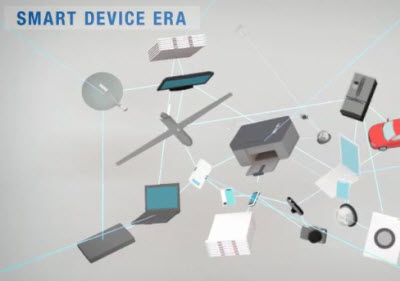 For all the talk about the “internet of things,” or web-connected sensors of all kinds, there’s a grim reality. Hackers are going to have a field day unless those things are protected from cyberattack. Mocana aims to protect all of those smart devices, from cars to smart meters, and that is why Intel Capital has just invested an undisclosed amount of money into the security startup.
For all the talk about the “internet of things,” or web-connected sensors of all kinds, there’s a grim reality. Hackers are going to have a field day unless those things are protected from cyberattack. Mocana aims to protect all of those smart devices, from cars to smart meters, and that is why Intel Capital has just invested an undisclosed amount of money into the security startup.
The deal being announced today shows that smart devices are the next frontier for security. As hackers look for new worlds to conquer, the $900 billion smart device market is a pretty juicy target. Mocana now has the distinction of having an investment from Intel, which bought security firm McAfee, as well as Symantec.
“This is a space that has a whole new set of security challenges,” said Adrian Turner, chief executive of Mocana, in an interview.
San Francisco-based Mocana has created software and services that use the cloud, or web-connected data centers, to protect devices such as smart meters, medical devices, smartphones, industrial equipment, senors, cars, home appliances, game consoles, TVs, set-top boxes and consumer electronics. Cisco has projected that 50 billion of these internet-connected devices will exist by 2020.
The tough thing about protecting these devices is that there isn’t a lot of extra computing power in them that can be dedicated to security. But Turner said his company is already protecting tens of millions of devices with its technology. More than 180 companies have licensed the technology, including Intel, General Electric, Cisco, Honeywell, General Dynamics, Freescale Semiconductor, Samsung, LG, Good and Siemens. That covers just about every segment of the modern economy.
“I’ve actually found that companies really care about the vulnerabilities in this area, partly because there has been so much publicity that has drawn attention to it,” said Turner.
Mocana has a modular design where customers can choose the level of protection they want. The technology can protect devices that have very little computing resources — even devices that don’t have an operating system.
After attending the Black Hat and Defcon security conferences in Las Vegas recently, it was clear to me that hackers have set their sites on these smart devices. Many of these devices have historically not been protected because there is a fundamental trade-off. In devices such as identification tags, the priority is on features such as low costs and low power, not security. If you add encryption and other protections to such devices, they can be a drain on power and add to costs.
“It’s true that … there is a cost-benefit trade-off,” said Turner. “In that case, we try to protect the back-end system that those devices connect to. But at some point in time, the data is going to be so important that you will have to protect it.”
Turner added, “In the past, the equation didn’t add up. Today, it does. Brands realize they face risks to their reputation. At some point, they will be forced to provide security for compliance reasons. It will be mandated. We are in dialogue with all of them now.”
It’s a conundrum because connected smart devices are growing rapidly. But the designers of these systems have to keep in mind not only the benefits of devices such as smart meters — such as the ability to precisely measure energy costs and lower them as a result — as well as the risks: someone could hack the smart meter, turn off your electricity, and thereby turn off your home’s security system.
Ultimately, the cost of protecting all of the smart devices will be built into the cost of those devices, Turner said.
Mocana was founded in 2004. Its platform protects not only devices, but the applications and services that run on them as well. It secures everything from Android smartphones to unmanned aerial vehicles. The company has 80 employees and has raised three rounds of capital.
With its investment, Intel Capital joins other Mocana investors Shasta Venture Capital and Southern Cross Venture Partners. Last year, Symantec also made a strategic investment in Mocana. Intel has made security one of its top three technology pillars. Dave Flanagan, managing director at Intel Capital, said that mobile device security is fundamental to the success of any mobile endeavor.
Since 1991, Intel Capital has invested over $10 billion in 1,140 companies in 50 countries. During that time, 191 portfolio companies have gone public and 268 were acquired. Last year, Intel invested $327 million in 119 investments.
Rivals are likely to include IBM as well as investors McAfee and Symantec at some point in the future.
“Fortunately, we have a lot of patents,” Turner said.
VentureBeat's mission is to be a digital town square for technical decision-makers to gain knowledge about transformative enterprise technology and transact. Learn More
